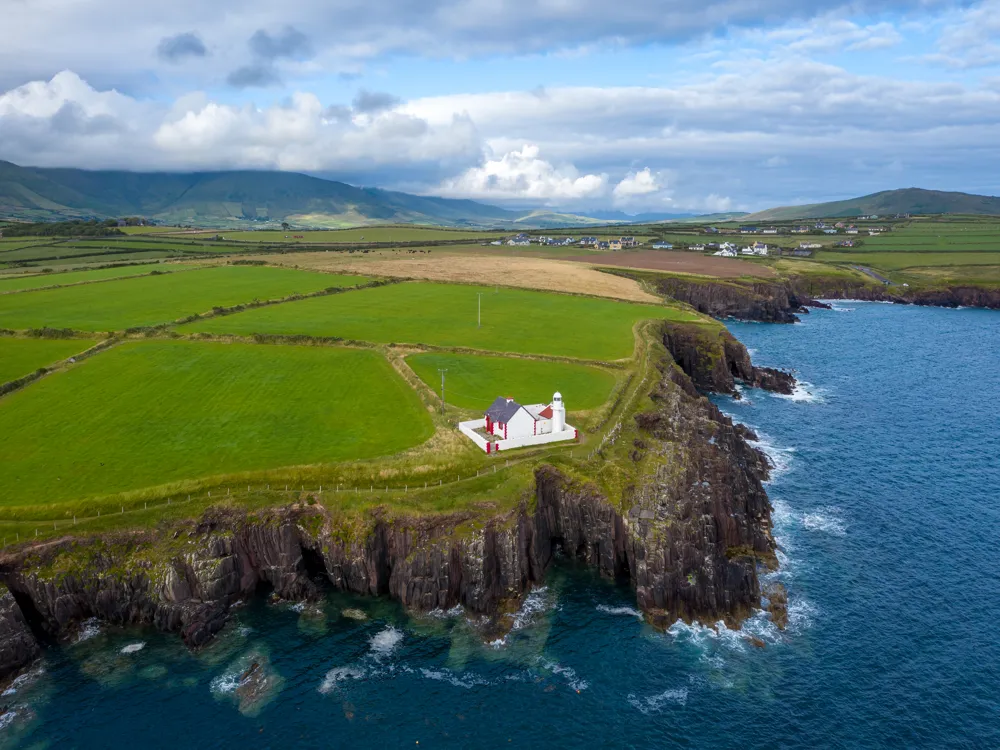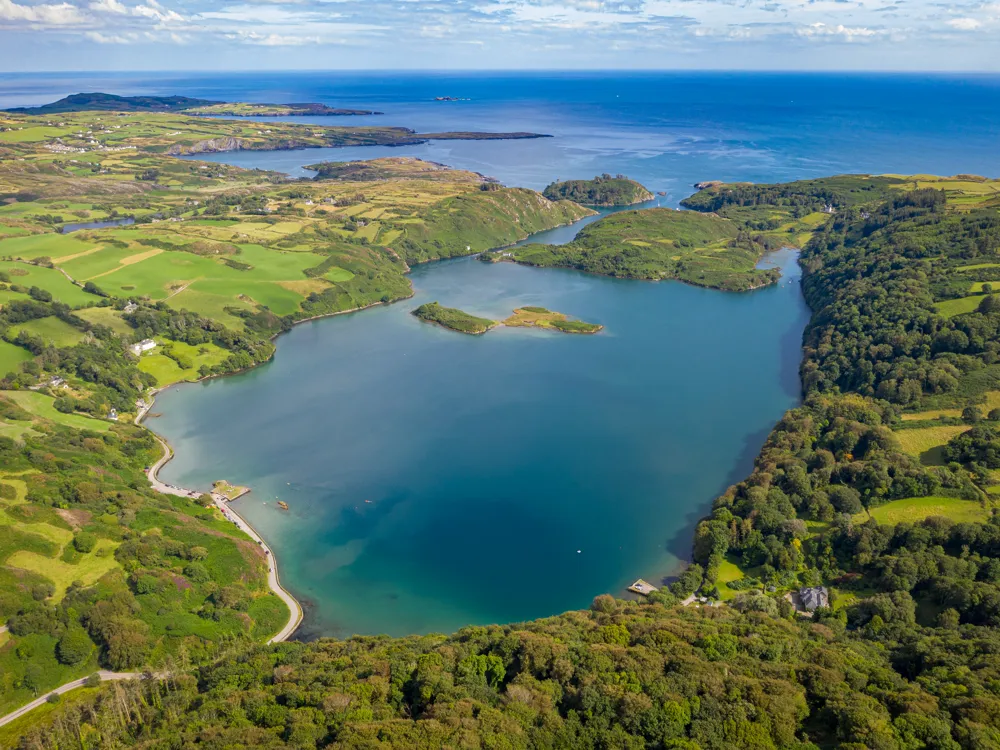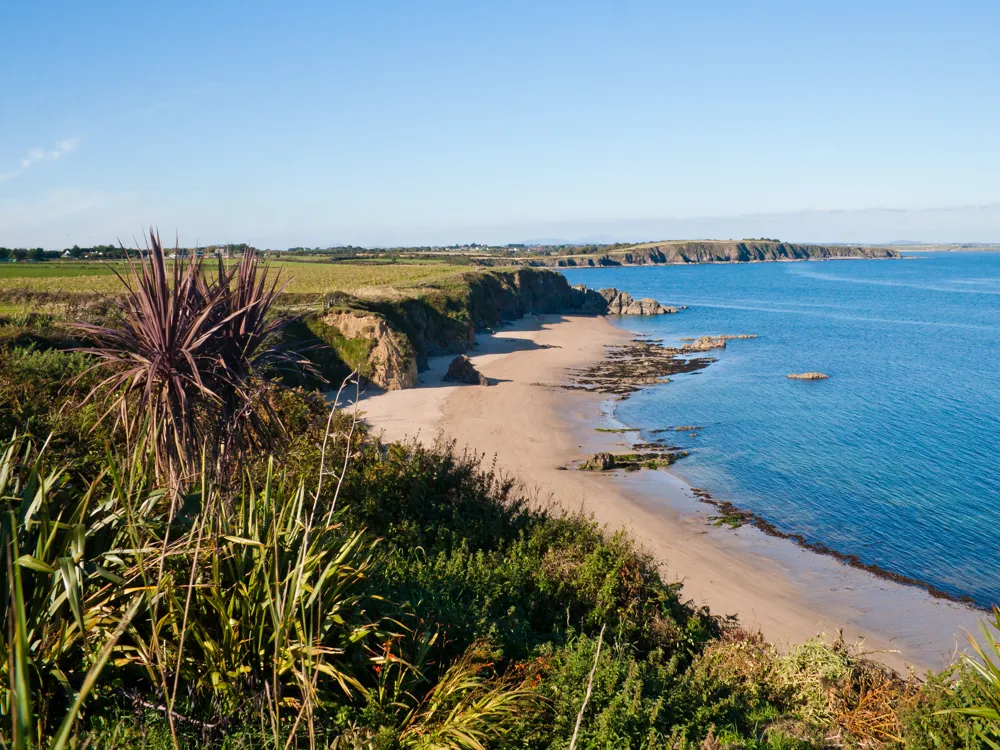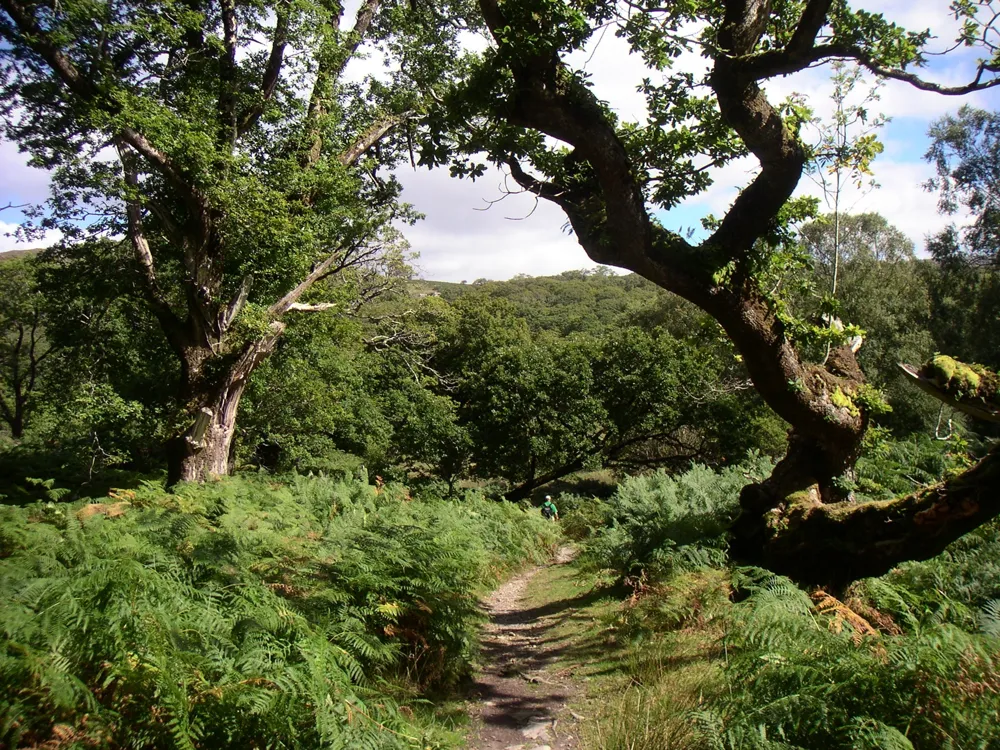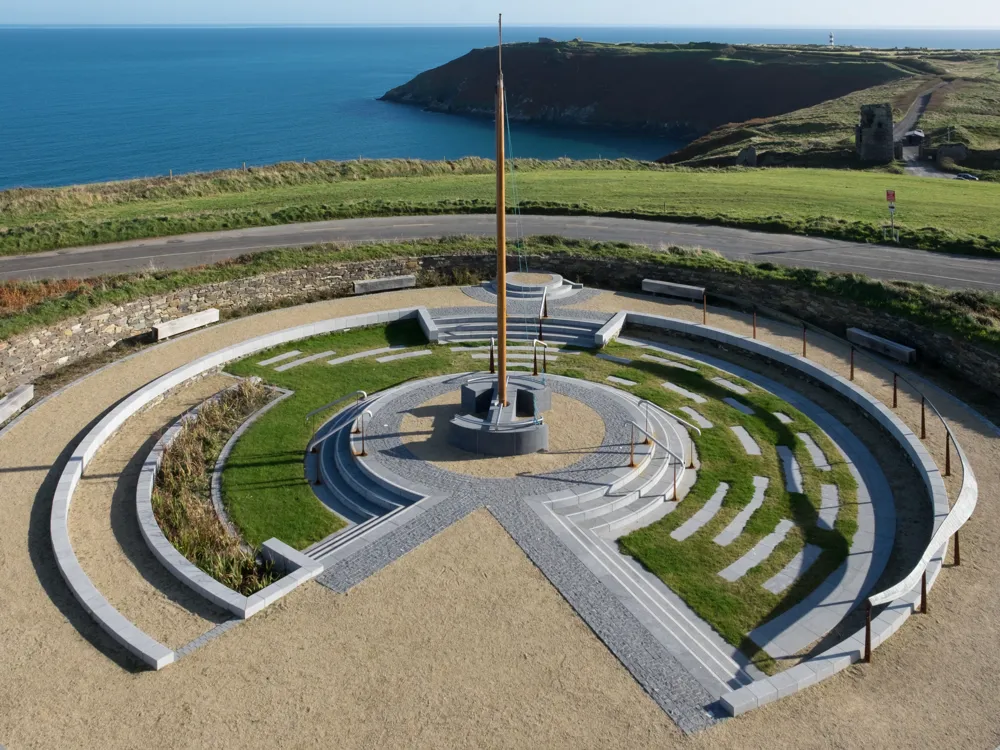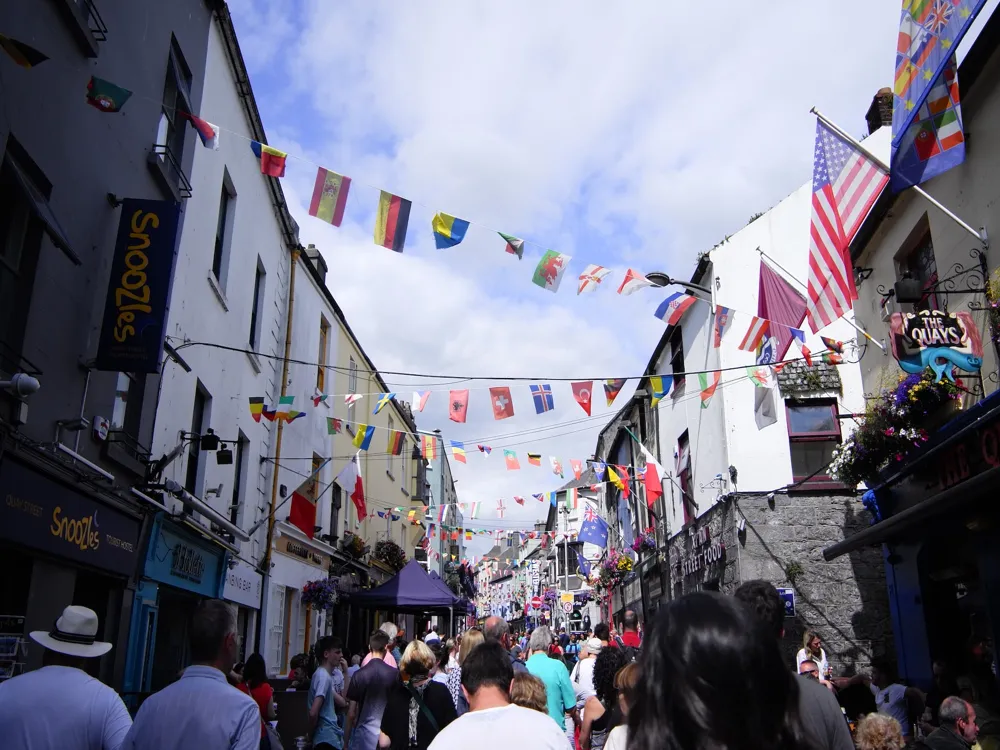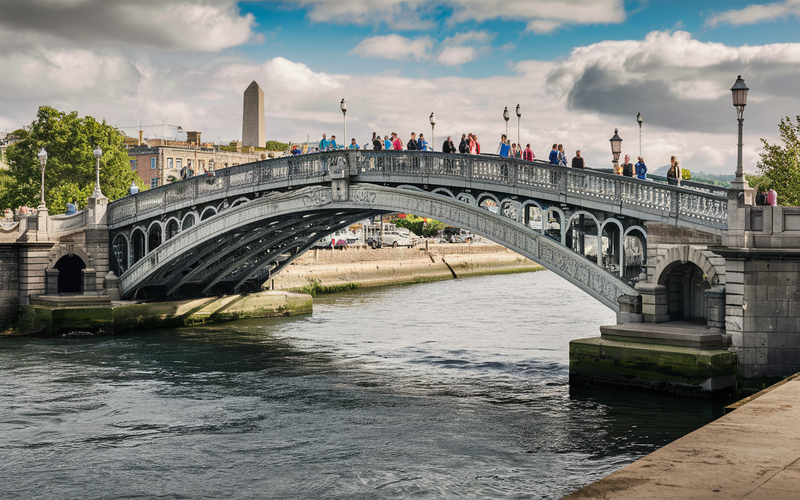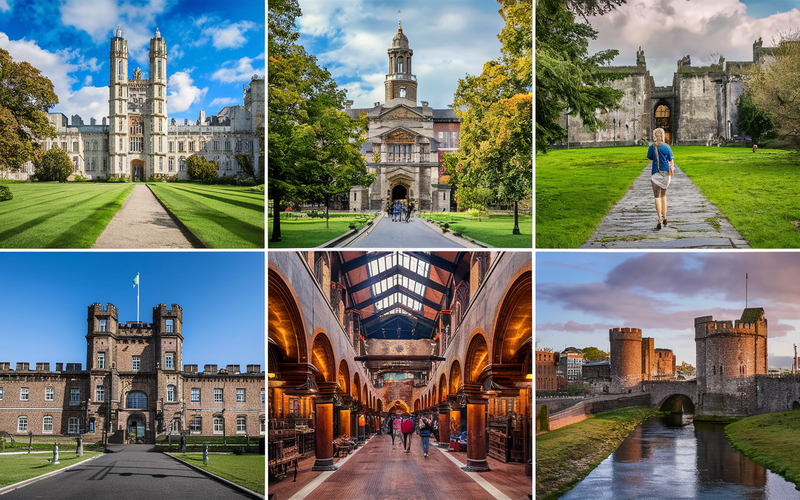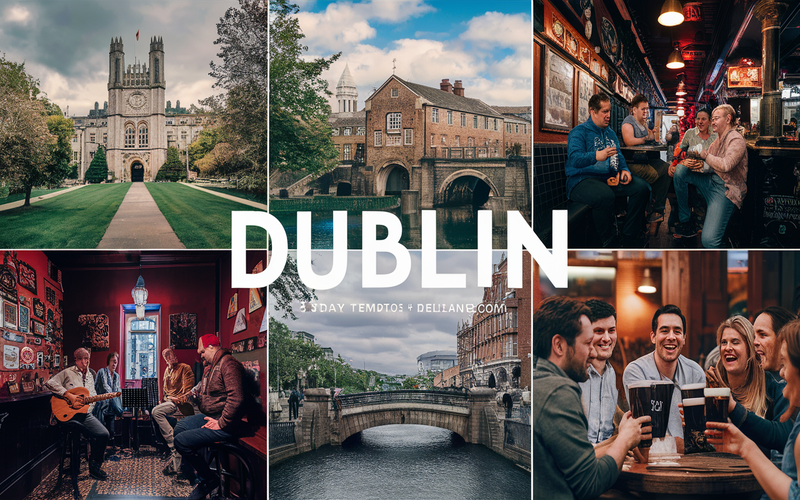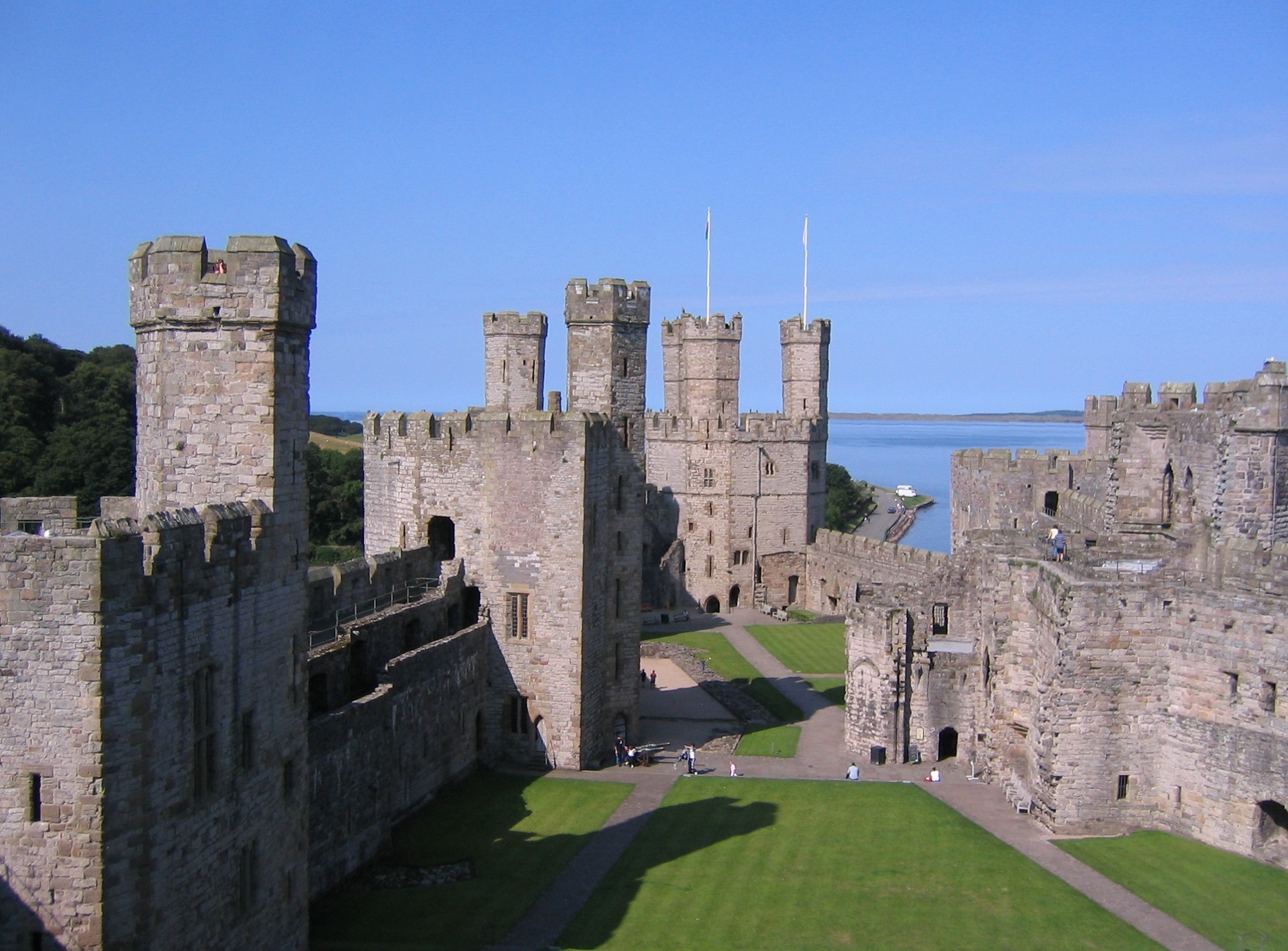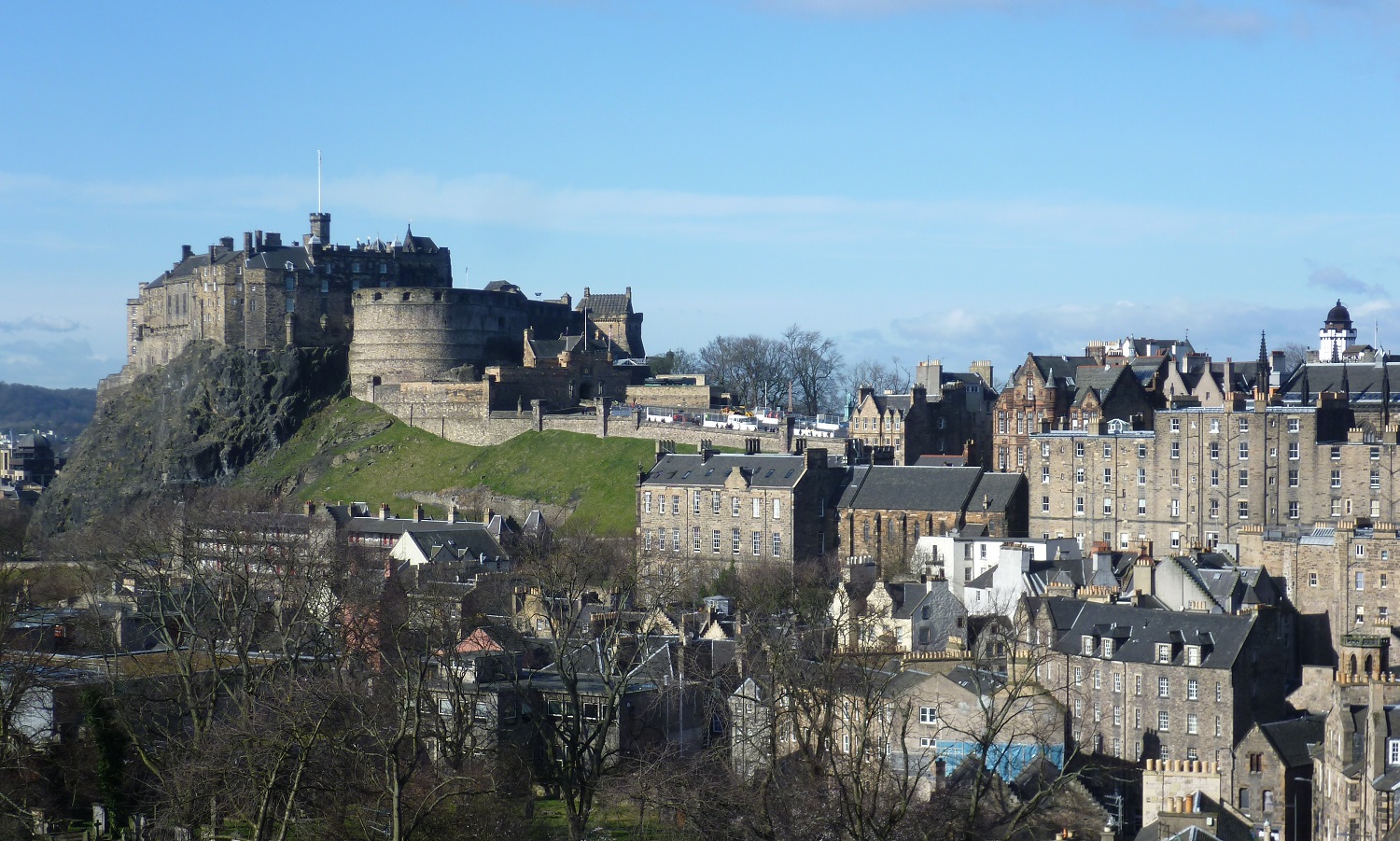Plan Your Travel To Ireland
Ireland Travel Essentials
Ideal Duration: 10 - 14 days
Currency: Euro (EUR)
Best Time: Summer (June-September) Read More
Budget: Moderate
"The mythical island of Europe"
Ireland Tourism
Ireland, sometimes known as the Emerald Isle, is a nation with lovely scenery, a rich history, and kind people. Dublin, the capital, is a city rich in literary heritage, energetic bars, and cultural landmarks including Trinity College's Book of Kells. Discover the tranquil beauty of the Ring of Kerry, the mysterious Giant's Causeway, and the breathtaking Moher cliffs. Ireland's verdant scenery is peppered with quaint towns and ancient castles. Take in the traditional Irish dancing, music, and storytelling. Ireland invites travellers to see its breathtaking scenery, diverse culture, and the kind Irish people with its timeless appeal.
Must Know Before You Travel to Ireland
- Weather: Ireland's weather can be unpredictable, so pack layers and waterproofs.
- Currency: The currency is the Euro (€).
- Electrical Outlets: Ireland uses Type G plugs (230V, 50Hz).
- Driving: Drive on the left side of the road.
- Tipping: It's customary to tip 10–15% in restaurants.
- Language: English and Irish (Gaeilge) are the official languages.
- Pub Etiquette: Respect local customs in pubs, and don't forget to try some traditional dishes.
- Gardens and Parks: Visit beautiful gardens like Powerscourt Gardens and Mount Usher Gardens. Ireland's landscapes are dotted with parks and green spaces, perfect for leisurely walks.
- Literary Heritage: Ireland has a strong literary tradition. Explore locations associated with famous writers like James Joyce, W.B. Yeats, and Oscar Wilde in Dublin and beyond.
- Gastronomy: Try traditional Irish dishes like Irish stew, colcannon, and soda bread. Embrace the pub culture for hearty meals and perhaps a taste of black or white pudding.
- Cliffs of Moher: Visit the iconic Cliffs of Moher for dramatic coastal views. It's advisable to check weather conditions before planning your visit.
- Arts and Festivals: Check for arts festivals and events happening during your visit. Dublin hosts the Dublin Theatre Festival, and Galway is known for the Galway International Arts Festival.
Tourist Places to Visit In Ireland
Dublin
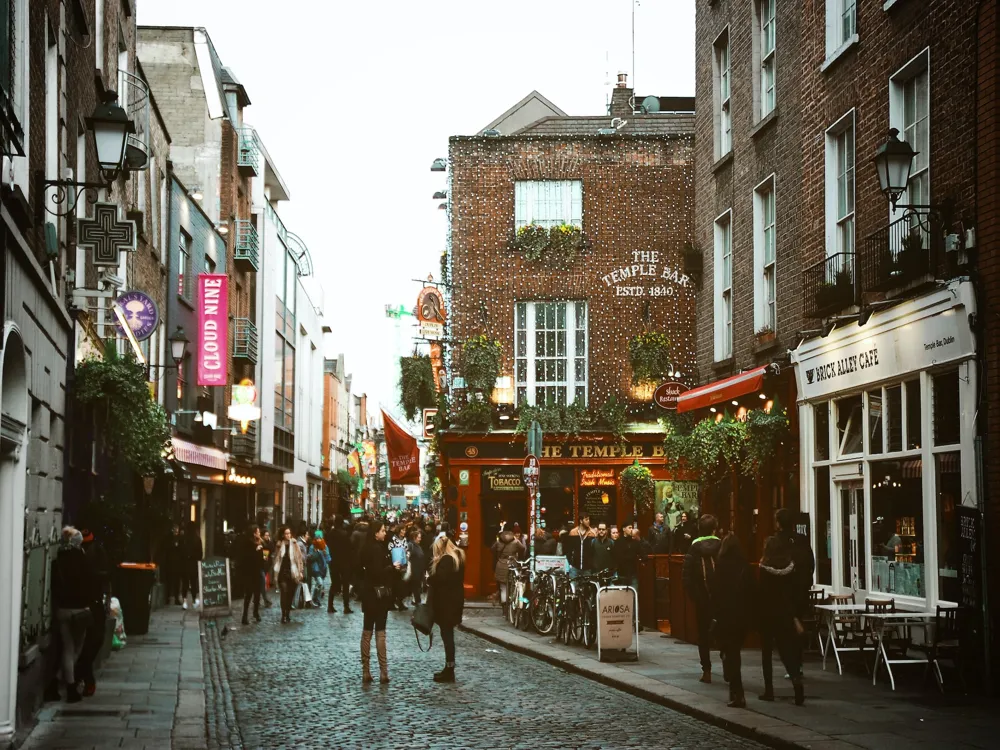
Ireland Travel Packages
Compare quotes from upto 3 travel agents for free
View All Packages For Ireland
More on Ireland Travel
All collections about Ireland
Best time to visit Ireland
Though the best time to visit is late spring and early autumn for the best weather, people flock to Ireland during the summers, especially in the months of July and August. Seaside destinations are too crowded during these months, and the remote areas get a considerable amount of tourist footprints. are too crowded during these months, and the remote areas get a considerable amount of tourist footprint.
Top Stories about Ireland Tourism
Read More on Ireland Travel
Exchanging money in Iceland:
In Iceland, the local currency is the Icelandic Krona (ISK). While credit cards are widely accepted, it's wise to carry some cash for small purchases and in case you visit remote areas. Currency exchange services are available at Keflavik International Airport, banks, and currency exchange offices in major cities. ATMs are also abundant. However, be mindful of withdrawal fees. It's recommended to exchange some money in advance for convenience, as exchange rates at airports may be less favorable. Iceland's economy is primarily cashless, so using cards is the norm, but having a bit of cash on hand is a good idea.
Nightlife in Iceland:
Iceland's nightlife scene offers a unique experience. Reykjavik, the capital, comes alive after dark with a variety of bars, clubs, and live music venues. Locals and tourists alike enjoy the vibrant atmosphere. The party often continues into the early hours. Don't miss the famous "runtur," a weekend tradition where people roam the streets looking for the best parties. Remember that alcohol is expensive due to high taxes, so pre-drinking at home is common. Also, it's essential to be respectful of noise levels in residential areas during the late-night festivities.
Shopping in Iceland:
Shopping in Iceland is a delightful experience. You'll find a wide array of unique items, like Icelandic woolens, handmade crafts, and volcanic rock souvenirs. Laugavegur in Reykjavik is a popular shopping street with boutique stores. For local food products, visit Kolaportid Flea Market. Keep in mind that Iceland can be pricey, so budget-conscious travelers should look for deals and sales. The country also boasts high-quality design shops featuring Scandinavian and Icelandic designs. Shopping hours are typically from 10 a.m. to 6 p.m. on weekdays, with shorter hours on weekends.
Festivals in Iceland:
Iceland hosts a multitude of captivating festivals throughout the year. The Reykjavik International Film Festival, held in September, showcases world cinema. In June, the Secret Solstice Music Festival draws international artists and music enthusiasts. The winter months offer chances to witness the stunning Northern Lights. The country's rich cultural heritage is celebrated on National Day (June 17th). Iceland Airwaves, a renowned music festival, features local and global acts. Each festival provides an opportunity to immerse yourself in Icelandic culture, whether it's through music, film, or the natural wonders of the land.
Hygiene in Iceland:
Iceland maintains high standards of hygiene. The tap water is safe to drink and of excellent quality. Restrooms are widely available in urban areas and are generally clean. Icelanders place a strong emphasis on cleanliness, and public spaces reflect this. The country's geothermal culture has led to a rich tradition of soaking in hot springs and pools, which are well-maintained and a fantastic way to relax while staying clean. Even in more remote areas, you'll find clean and well-maintained facilities. It's essential to respect the pristine environment by disposing of waste properly and adhering to Leave No Trace principles.
Tips for visiting Iceland:
It's important to pack layers for your trip to Iceland in order to be ready for the unpredictable weather. Essential items are strong hiking boots and a waterproof jacket. It is best to rent a four-wheel-drive car to explore the rough terrain. Respect the local fauna and observe "Everyman's Right" camping regulations when exploring the area. A weather prediction should always be checked before starting any outdoor activity. Last but not least, respect the environment and refrain from upsetting natural features. Traveling responsibly guarantees that Iceland's stunning landscapes will be preserved for future generations.
Food of Iceland:
Iceland's distinct topography is reflected in its food. Skor, a dairy product similar to yoghurt, smoked lamb, and pickled shark are examples of traditional foods. Fish is also popular, especially haddock and cod. Take advantage of the chance to enjoy regional delicacies like "hangikjöt" (smoked lamb) and "plokkfiskur" (fish stew). Local hot dog stands are a popular quick bite option. Trying "hákarl" (fermented shark) is a cultural experience for the daring. International flavours are also incorporated into modern Icelandic cuisine, making eating there a gastronomic journey. Even though eating out might be costly, you must try the local cuisine while you're there.
Photos of Ireland
All Country Photos Ireland
Popular Questions And Answers on Ireland
What is the best time to visit Ireland?
The best time to visit Ireland is during the summer months from June to August when the weather is mild and the days are long. However, Ireland's temperate climate makes it a year-round destination.
What are the must-visit places in Ireland?
Some of the must-visit places in Ireland include Dublin, the Cliffs of Moher, the Ring of Kerry, Giant's Causeway, Blarney Castle, and the Wild Atlantic Way.
Do I need a visa to visit Ireland?
If you're from the United States or the European Union, you typically do not need a visa for short tourist visits to Ireland. Check the Irish government's website for the most up-to-date visa requirements.
What's the currency in Ireland?
The currency used in Ireland is the Euro (EUR). Be sure to have some cash on hand, although credit and debit cards are widely accepted.
Is the Irish language widely spoken?
While Irish (Gaeilge) is one of the official languages, English is the most commonly spoken language in Ireland. You'll have no trouble communicating in English.
What's the food like in Ireland?
Irish cuisine includes dishes like Irish stew, fish and chips, and traditional breakfasts. Don't forget to try some delicious soda bread and savor a pint of Guinness.
How can I get around in Ireland?
You can get around Ireland by renting a car, taking trains or buses, or using the extensive network of local and regional buses. Many cities and towns are also walkable.
What's the weather like in Ireland?
Ireland has a temperate maritime climate with mild temperatures year-round. Be prepared for occasional rain, and layer your clothing for varying conditions.
Are there any cultural customs I should be aware of?
Irish people are known for their friendliness. Common courtesies like saying
Is Ireland a safe destination for travelers?
Ireland is generally considered a safe country for tourists. However, like any destination, it's wise to take common-sense precautions and be aware of your surroundings.

